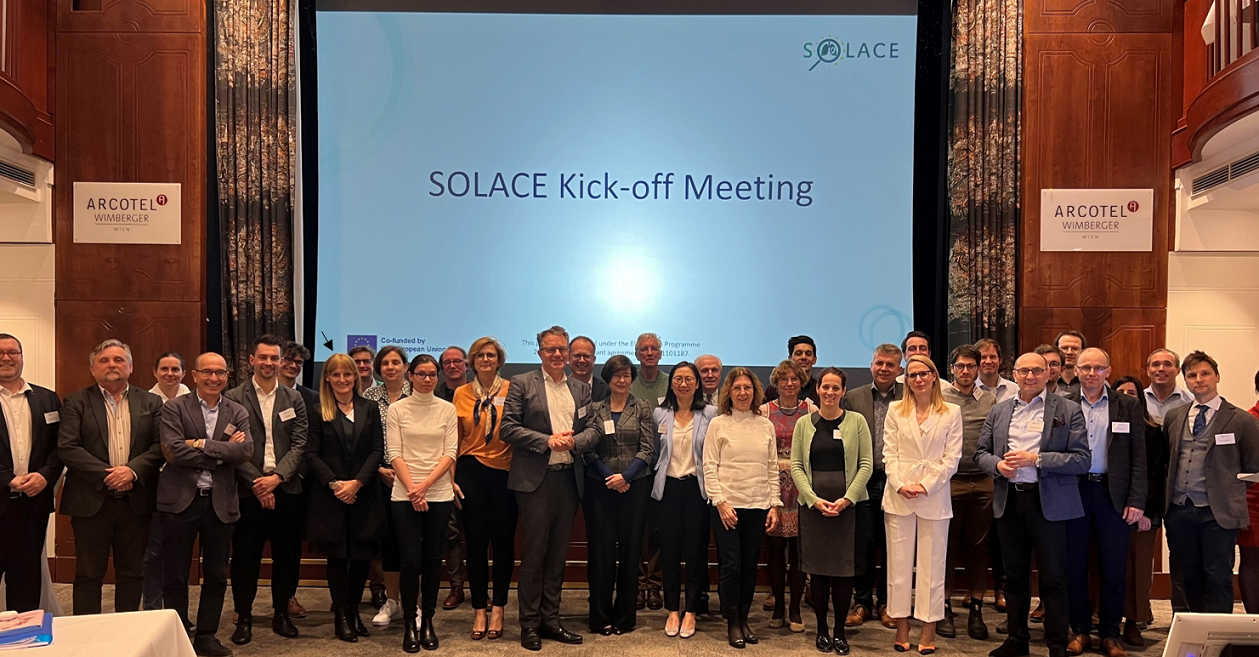Lung cancer is currently the leading cause of cancer deaths, with over 33,000 deaths a year in France (2017 figures). Over half of lung cancers are diagnosed at an advanced metastatic stage, given that people tend to wait for symptoms to become apparent before going for a scan. The European Union is determined to change this situation. On December 9, 2022, the European Council updated its screening recommendations, which now include lung cancer among the types of cancers that need to be screened.
The SOLACE project (Strengthening the Screening of Lung Cancer in Europe) was officially launched in Vienna on April 18, 2023. It aims to remove the obstacles to screening in order to ensure that all social categories have access to it. In total, 17 European countries will join forces and share their expertise over three years.
“This is an implementation project, not a research project,” said Marie-Pierre Revel, Head of the Radiology Department at Cochin Port-Royal AP-HP Hospital in Paris. “We will pool our experience in launching pilot projects and work together on a range of different strategies, in particular recruiting participants that are harder to reach, namely women, disadvantaged groups, ethnic minorities and people exposed to an increased risk of lung cancer, such as those with tobacco-related chronic respiratory tract disease.”
Professor Revel will thus share with her European colleagues the lessons and results of the CASCADE study that she oversees alongside Scientific Director Professor Marie Wislez. This pilot study, which targets women smokers or former smokers, began in Paris on April 8, 2022, and in three other centers (Rennes, Béthune and Grenoble) between June and September 2022. Other centers (including Nancy, Toulouse and Besançon) will open in autumn 2023 to cover a wider geographical area. The aim is to gather 2,400 female participants, half of which have already been signed up. Over a two-year period of recruitment, the participants will undergo an initial screening scan, followed by a second one a year later and a final one two years after the first.
“The idea behind the SOLACE Project is for member states to share a toolbox of effective strategies in order to promote greater lung cancer screening and collecting more data, in particular concerning women but also on isolated and vulnerable populations. We are therefore fighting people’s tendency to bury their heads in the sand, as well as the fear and stigma still associated with lung cancer,” Marie-Pierre Revel, Head of the Radiology Department of Cochin Port-Royal AP-HP Hospital, Paris.
CASCADE aims to address the glaring lack of data on women, who are by and large either underrepresented or totally absent from European studies. “However, epidemiology and current statistics demonstrate a strong increase in lung cancer deaths in women, with alarming projections.But we now know that for the same amount of exposure to tobacco, women run a greater risk of developing lung cancer,” Dr. Revel pointed out. The eligible target is women aged between 50 and 74, of whom 23% smoke every day in France.
The results of the CASCADE strategy will be shared in order to compare the impact on the number of women screened before and after the campaign. 300,000 flyers have been sent out since last year, along with invitations to participate in breast cancer screening. A number of articles have been published in regional newspapers, and ambassadors who have undergone screening will also provide testimonials to the press.
Hungary is implementing the same strategy with ethnic minorities who have little access to healthcare, by having representatives of these communities tell their stories.
“SOLACE will provide comprehensive guidelines for launching high-quality lung cancer screening programs with high participation rates. Common errors can thus be avoided and life expectancy increased,” Hans-Ulrich Kauczor, Scientific Coordinator of the SOLACE project.
Screening scans also require professionals to be trained (in collaboration with the Société Française de Radiologie), in particular on the technique of low-dose computed tomography (LDCT). Trials carried out in the USA and Europe have shown that LDCT can reduce the number of lung cancer deaths by 20%. The idea is also to provide them with an AI solution that will enable dual reading, as well as more efficient large-scale organization. “Scanning only takes a few seconds,” said Professor Revel. “It is all the more important since not every cancer detected is serious. Early forms can be treated curatively, with minimally invasive surgery.”
The aim of SOLACE is to gather data from 10,000 women and isolated communities. Mobile health centers equipped with scanners are thus expected to visit remote areas where there are no hospitals. This is what Professor Sébastien Couraud will assess in the Lyon region, as part of the SOLACE project. The best form of prevention is still to stop smoking, Professor Revel pointed out. Helping people quit smoking is therefore always offered to the people treated.



